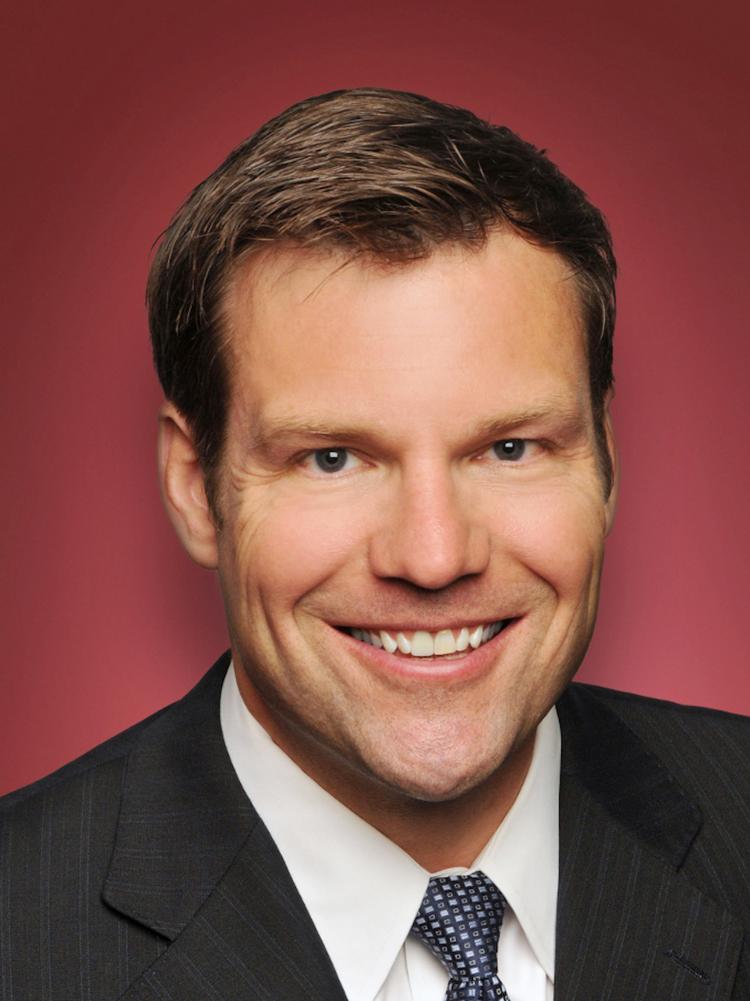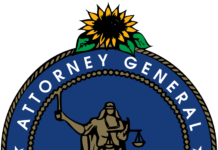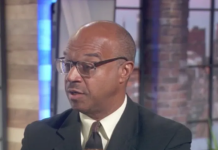Lots of action in Kansas politics on Wednesday, much of it again focused on Secretary of State Kris Kobach plus news about tuition increases and a state audit highly critical of the state’s ability to fight wildfires. Let’s go around the horn.
Kobach

Kobach continues to rack up headlines, this time for trying to secure a pardon for a campaign contributor and some phrasing in how he wants county election offices to comply with a court order blocking proof-of-citizenship requirements for voters.
The Associated Press’ John Hanna breaks a big story on Thursday afternoon, detailing how Kobach sought a pardon for Ryan Bader, vice president and treasurer of his family’s Kansas City, Mo. firearms business. The company has donated at least $7,000 to Kobach in the past five years, the AP reports. Here’s the story.
Also Wednesday, Kobach sent out a directive instructing county election offices on how they should comply with a federal court order blocking the state’s proof-of-citizenship requirements. However, the memo adds a clause asking election offices to track anyone who voluntarily provides proof-of-citizenship documents. Some are questioning the tracking language and whether it complies with the court’s order.
Tuition hikes
The Kansas Board of Regents on Wednesday approved a round of tuition and fee increases even though the Legislature restored $15 million in previous budget cuts to higher education
The increases for resident undergraduate students ranged from 1.2 percent at Kansas State to 3 percent at the University of Kansas.
Other increases approved Wednesday included 2.8 percent at Pittsburg State, 2.3 percent at Emporia State, 2.5 percent at Fort Hays State, 2.2 percent at Wichita State, 2.1 percent at the University of Kansas-Edwards campus and 1.9 percent at the University of Kansas Medical Center.
The actual dollar amounts per semester translate this way: $162.45 at KU; $137.25 at KU-Edwards; $103.65 at KU-Med, $64 at K-State; $88.83 at Wichita State; $74.58 at Emporia; $99 at Pittsburg State; and $61.95 at Fort Hays State.
Kansas higher education officials said they were able to keep tuition increases down because the Legislature put more money into colleges and universities for the upcoming fiscal year starting July 1.
During the last decade, student tuition at the state’s colleges and universities has been steadily climbing as the Legislature reduced its contribution to higher education.
State funding for higher education has dropped almost $100 million from 2009 to 2018.
Meanwhile, tuition has increased by about $261 million in the last decade, rising to $729.8 million last year from $468.1 million in 2009. This year, tuition will bring in $743 million.
Even with the Legislature restoring money that had been cut, state funding for higher education is about $73 million less than it was in fiscal year 2009.
Here’s the Board of Regents’ report on the tuition increases and coverage from the Lawrence Journal-World.
Wildfire troubles
A new state audit out on Wednesday revealed that Kansas lacks the resources to battle wildfires. 
The audit found that the state’s system for fighting wildfires is fragmented, impeded by a lack of resources and ineffectively coordinates across state and local agencies.
The state also doesn’t have expertise in fighting wildfires. In short, the state is not sufficiently prepared for responding to a wildfire. Here’s the report plus coverage from the Wichita Eagle and the Topeka Capital-Journal.
KDHE responds on Maximus
After former state Sen. Jim Barnett called on Republican Gov. Jeff Colyer’s administration to end its arrangement with a KanCare contractor, the state health department told the Lawrence Journal-World it’s working on an improvement plan with the company.
Maximus, which processes applications for the state’s privatized Medicaid system, had a June 1 deadline to comply with its contractual obligations to improve the accuracy of financial payments and move applications along faster.
The state has already acknowledged that Maximus is not in full compliance with its contract but it remains uncertain what will happen.
The company could face massive fines, but the health department told the Journal-World that the issue is being negotiated. The issue could be resolved in July.
Barnett, who is in a four-way race for the Republican nomination for governor, called for the Kancare reforms on Tuesday.
Barnett urged the governor’s administration to levy the maximum fine possible against the company.












